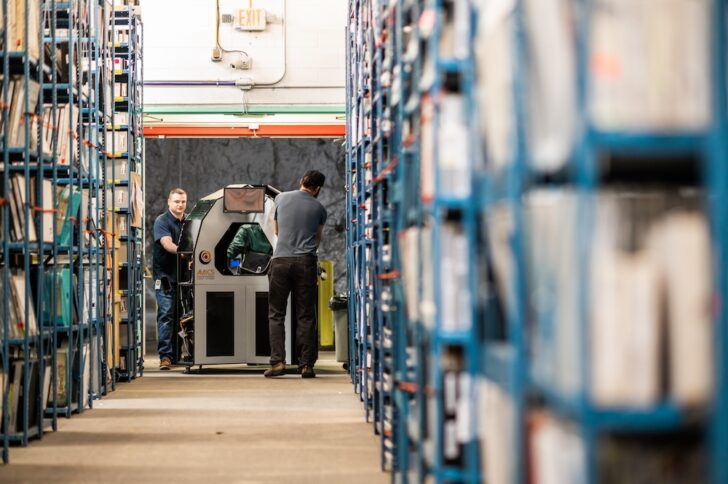Data Archiving Specialist Warns That They’re Seeing A 20% Failure Rate Reading From Music Hard Drives

Data archiving specialist Iron Mountain Media and Archive Services says that they are seeing about a 20% failure rate on reading digital music data stored on hard drives from the ’90s.
“There are historic sessions from the early to mid-’90s that are dying, notes Iron Mountain’s Robert Koszela.
Mix reports:
Of the thousands and thousands of archived hard disk drives from the 1990s that clients ask the company to work on, around one-fifth are unreadable. Iron Mountain has a broad customer base, but if you focus strictly on the music business, says Robert Koszela, Global Director Studio Growth and Strategic Initiatives, “That means there are historic sessions from the early to mid-’90s that are dying.”
For the past 25 or more years, the music industry has been focused on its magnetic tape archives, and on the remediation, digitization and migration of assets to more accessible, reliable storage. Hard drives also became a focus of the industry during that period, ever since the emergence of the first DAWs in the late 1980s. Iron Mountain wants to alert the music industry at large to the fact that, even though you may have followed recommended best practices at the time, those archived drives may now be no more easily playable than a 40-year-old reel of Ampex 456 tape.
“The big challenge that we face is just getting the word out there,” says Koszela, who racked up years of experience on the record label side with UMG before joining Iron Mountain Media and Archive Services. Iron Mountain handles millions of data storage assets for a diverse list of clients, from Fortune 500 companies to major players in the entertainment industry, so the company has a significant sample size to analyze, he points out. “In our line of work, if we discover an inherent problem with a format, it makes sense to let everybody know. It may sound like a sales pitch, but it’s not; it’s a call for action.”
Do you have a plan for reliably archiving your music? Share what you’re doing in the comments!

























